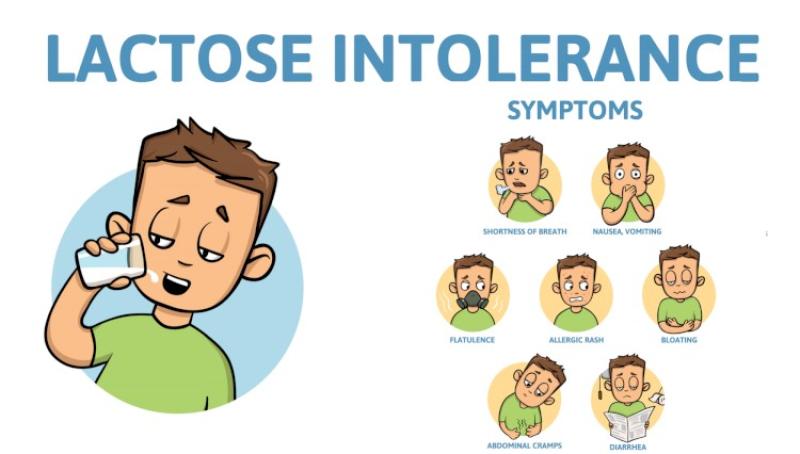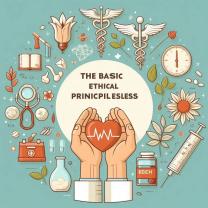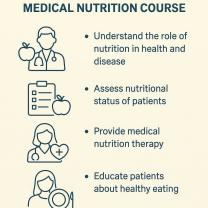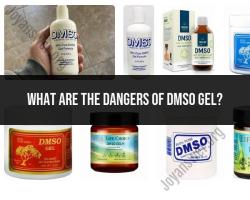Can you suddenly become lactose intolerant?
While it's less common, it is possible for individuals to develop lactose intolerance suddenly. This phenomenon is known as secondary lactose intolerance and can be caused by various factors. Here are some possible causes and considerations:
Infection or Illness:
- Gastrointestinal infections, such as viral or bacterial infections, can damage the lining of the intestines. This damage may temporarily reduce the production of lactase, the enzyme needed to digest lactose, leading to lactose intolerance.
Gastrointestinal Surgery:
- Certain types of gastrointestinal surgeries, especially those involving the small intestine, can result in a reduced ability to produce lactase. This can lead to lactose intolerance.
Inflammatory Bowel Diseases (IBD):
- Conditions like Crohn's disease or ulcerative colitis, which fall under the umbrella of inflammatory bowel diseases (IBD), can cause inflammation in the digestive tract. Inflammation can impair the production of lactase and contribute to lactose intolerance.
Celiac Disease:
- Celiac disease is an autoimmune disorder in which the consumption of gluten damages the small intestine. This damage can lead to secondary lactose intolerance.
Chemotherapy or Radiation Therapy:
- Cancer treatments such as chemotherapy and radiation therapy can cause damage to the digestive system, leading to temporary or permanent lactose intolerance.
Certain Medications:
- Some medications, especially those containing antibiotics or medications used to treat certain gastrointestinal conditions, can disrupt the balance of gut bacteria and contribute to lactose intolerance.
Aging:
- While not necessarily sudden, some individuals may experience a decrease in lactase production as they age. This age-related decline in lactase activity can result in the onset of lactose intolerance.
It's essential to differentiate between primary lactose intolerance, which is a genetically determined condition that typically develops in adolescence or adulthood, and secondary lactose intolerance, which arises due to a specific event or condition.
If someone experiences sudden and persistent symptoms of lactose intolerance, such as bloating, gas, diarrhea, or abdominal pain after consuming dairy products, it is advisable to consult with a healthcare professional. A healthcare provider can assess the symptoms, conduct necessary tests, and determine the underlying cause of lactose intolerance. In some cases, lactose intolerance may be a temporary condition, while in others, it may be a long-term or permanent change.
Sure, here is a comprehensive overview of lactose intolerance, including its causes, triggers, and management strategies:
Understanding the Causes and Development of Lactose Intolerance
Lactose intolerance is a common digestive condition caused by the insufficient production of lactase, an enzyme responsible for breaking down lactose, a sugar found in milk and dairy products. When undigested lactose reaches the colon, it interacts with bacteria, producing uncomfortable symptoms such as bloating, gas, diarrhea, and abdominal cramps.
Causes of Lactose Intolerance:
Primary Lactose Intolerance: This is the most common type, characterized by a gradual decline in lactase production after infancy. It is primarily genetic and more prevalent in individuals of Asian, African, and Hispanic descent.
Secondary Lactose Intolerance: This type results from damage to the small intestine due to conditions like celiac disease, Crohn's disease, or intestinal infections.
Developmental Lactose Intolerance: This occurs in premature infants whose small intestines are not fully developed to produce lactase.
Factors that can Trigger Lactose Intolerance Symptoms
The severity of lactose intolerance symptoms can vary depending on individual factors and the amount of lactose consumed. Some common triggers include:
Quantity of Lactose: Consuming large amounts of lactose at once can overwhelm the limited lactase production, leading to symptoms.
Type of Dairy Product: Some dairy products, such as milk and ice cream, contain higher levels of lactose than others, like yogurt and hard cheeses.
Individual Sensitivity: Individual lactase production levels and overall gut health can influence susceptibility to lactose intolerance symptoms.
Meal Composition: Consuming lactose-containing foods with other foods may slow down lactose absorption and reduce symptoms.
Managing Lactose Intolerance with Dietary Adjustments and Supplements
While there is no cure for lactose intolerance, several strategies can help manage symptoms and improve overall dietary intake.
Dietary Adjustments:
Gradually Introduce Lactose: Slowly introduce lactose-containing foods back into the diet to increase tolerance.
Choose Lower-Lactose Dairy Products: Opt for lower-lactose dairy options like yogurt, hard cheeses, and lactose-reduced or lactose-free products.
Consume with Other Foods: Pair lactose-containing foods with other foods to slow down lactose absorption.
Monitor Fiber Intake: Adequate fiber intake can help regulate digestion and alleviate lactose intolerance symptoms.
Dietary Supplements:
Lactase Enzyme Supplements: These supplements provide lactase to aid in lactose digestion, reducing symptoms.
Probiotics: Probiotics, live bacteria beneficial for gut health, can improve lactose digestion and reduce symptoms.
Additional Management Tips:
Keep a Food Diary: Track consumed foods and symptom patterns to identify triggers and adjust the diet accordingly.
Consult a Dietitian: A registered dietitian can provide personalized dietary guidance and recommendations for managing lactose intolerance.
Consider Over-the-Counter Remedies: Simethicone can help reduce gas and bloating associated with lactose intolerance.
If lactose intolerance symptoms are severe or do not improve with lifestyle changes, consult a healthcare professional for further evaluation and management strategies.













